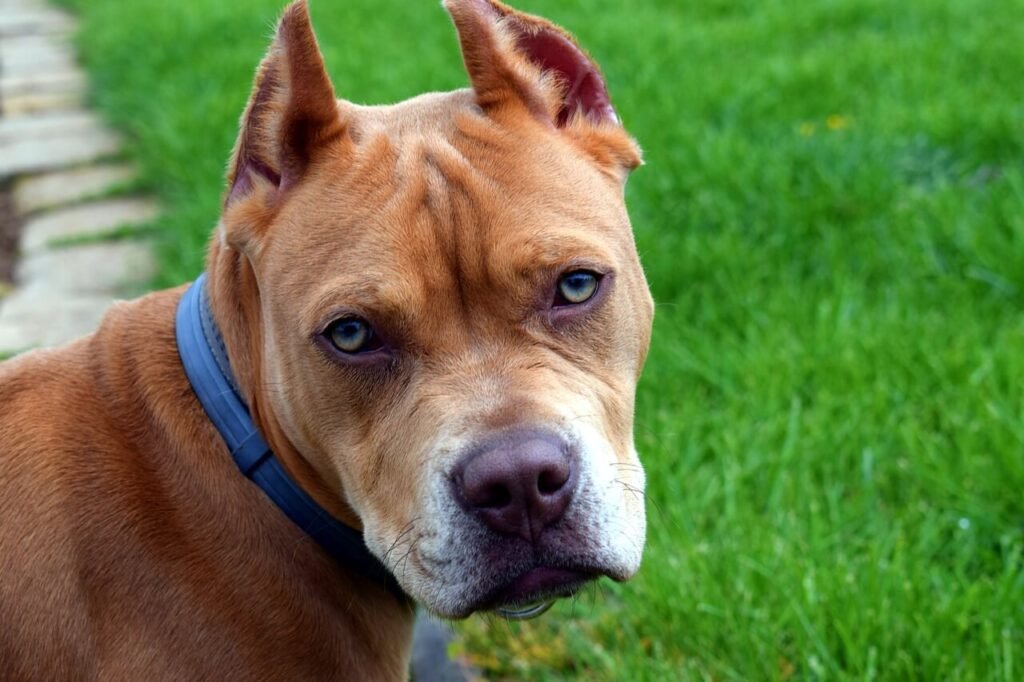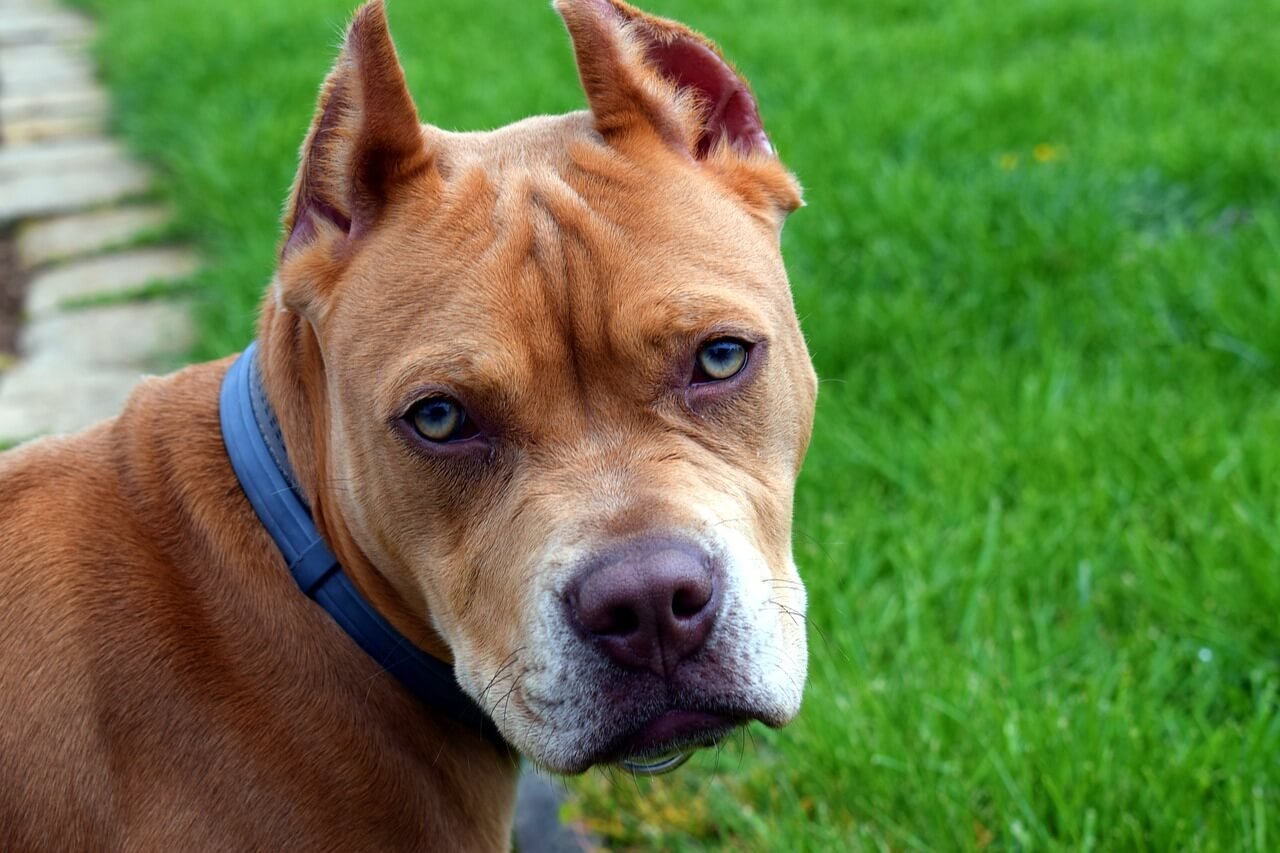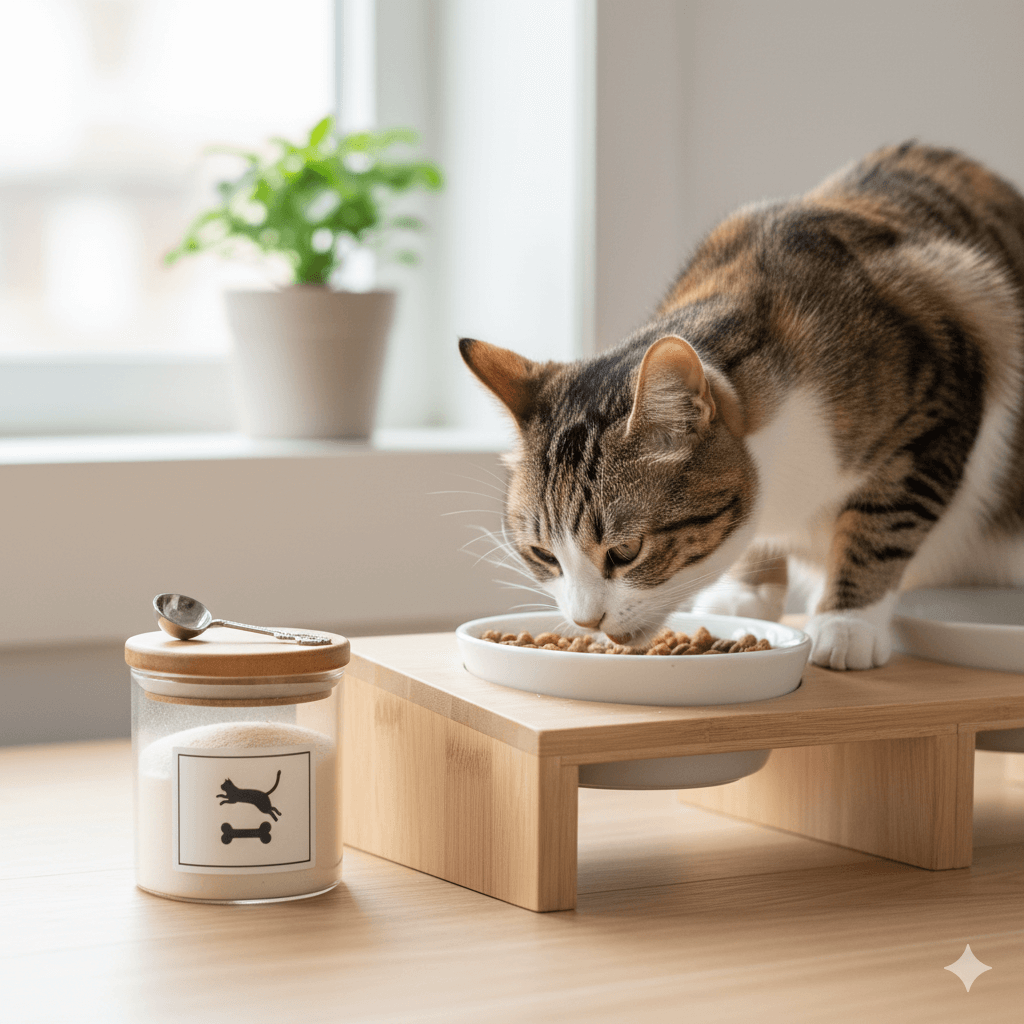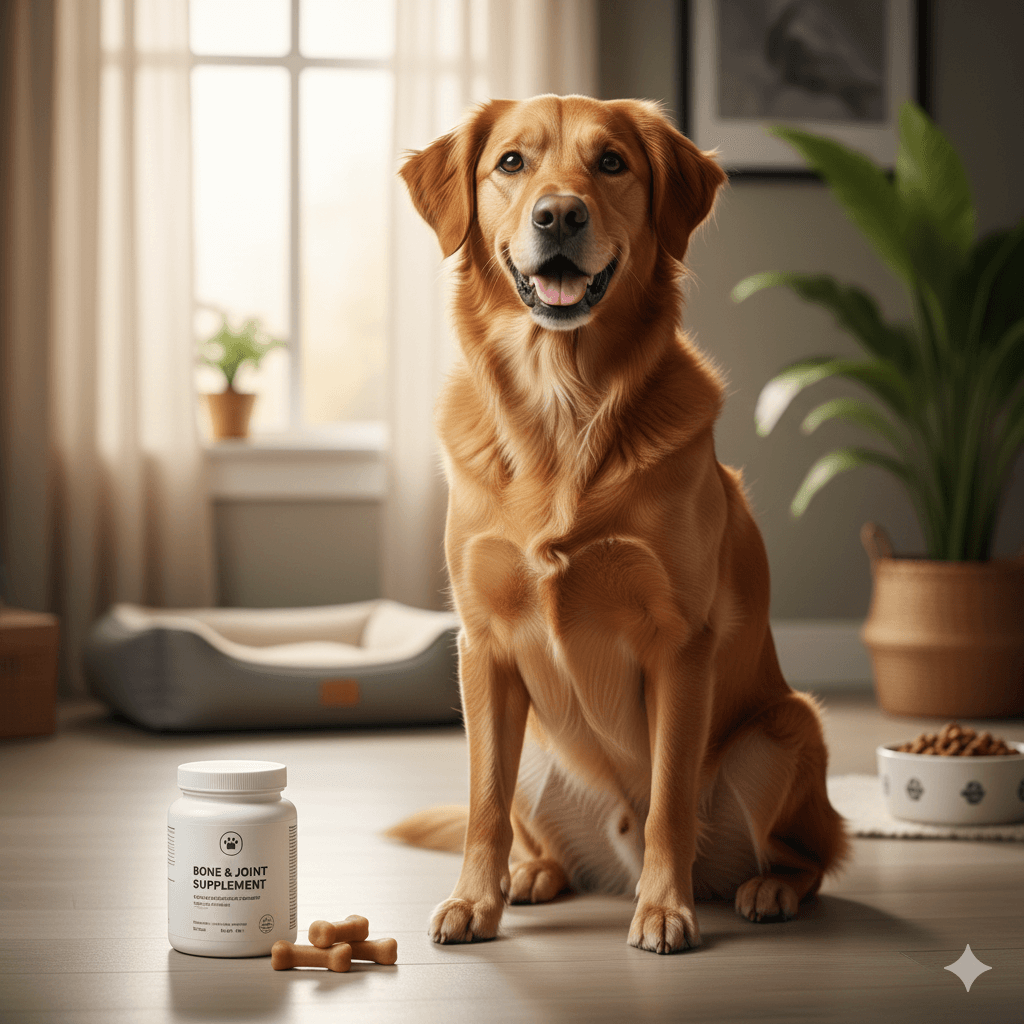Best Dog Food for Pitbulls with Skin Allergies
Pitbulls are known for their loyalty, strength, and affectionate nature, but they can also be prone to skin allergies that affect their overall health and happiness. These allergies often stem from food sensitivities, environmental factors, or genetic predispositions. As a responsible pet owner, choosing the right dog food is crucial to managing your Pitbull’s skin allergies and ensuring they thrive. This blog post will guide you through the best dietary options, key ingredients to look for, and practical tips to support your furry friend’s well-being. Let’s dive into how proper nutrition can make a world of difference for Pitbulls with sensitive skin.
Key Ingredients to Look for in Dog Food for Pitbulls with Skin Allergies
When selecting dog food for a Pitbull with skin allergies, focusing on high-quality, hypoallergenic ingredients is essential. These components not only nourish your dog but also help reduce irritation and inflammation.
Limited Ingredient Diets (LID):
Foods with fewer ingredients minimize the risk of triggering allergic reactions, making them ideal for dogs with sensitive skin.Novel Proteins:
Proteins like duck, venison, or salmon are less likely to cause allergies compared to common proteins like chicken or beef.Omega-3 Fatty Acids:
Found in fish oil or flaxseed, omega-3s promote healthy skin and reduce inflammation caused by allergies.Grain-Free Options:
While not necessary for all dogs, grain-free foods can benefit those with grain sensitivities, reducing itching and redness.Probiotics and Prebiotics:
These support gut health, which plays a significant role in managing skin allergies and boosting the immune system.
By prioritizing these ingredients, you can provide your Pitbull with a diet tailored to their specific needs, promoting healthier skin and a happier life.

Common Allergens to Avoid in Dog Food
Identifying and avoiding potential allergens is a critical step in managing your Pitbull’s skin allergies. Many commercial dog foods contain ingredients that can exacerbate symptoms, so it’s important to read labels carefully.
Artificial Additives:
Preservatives, colors, and flavors can irritate sensitive skin and should be avoided whenever possible.Corn, Wheat, and Soy:
These common fillers are frequent culprits of food allergies and may contribute to skin issues in Pitbulls.Dairy Products:
Many dogs are lactose intolerant, and dairy can trigger digestive upset and skin flare-ups.Low-Quality Meat Byproducts:
These can include unwanted parts of animals and are often poorly digested, leading to allergic reactions.High Glycemic Carbohydrates:
Ingredients like potatoes and tapioca can spike blood sugar levels and worsen inflammation in some dogs.
Steering clear of these allergens ensures your Pitbull receives a clean, nutritious diet that supports their skin health and overall vitality.
Check this guide 👉Worm Under Dog Skin: Best 7 Expert Tips!
Check this guide 👉Dog Skin Conditions: Best 7 Expert Tips!
Check this guide 👉How to Apply Coconut Oil to Dog Skin: Best 7 Expert Tips!
Best Ingredients for Skin Health | Ingredients to Avoid for Allergies |
|---|---|
Novel proteins (duck, salmon) | Corn, wheat, and soy |
Omega-3 fatty acids | Artificial colors and preservatives |
Probiotics and prebiotics | Low-quality meat byproducts |
Limited ingredient formulas | Dairy products |
Grain-free options (if needed) | High glycemic carbs (potatoes, tapioca) |
Top Brands Offering Hypoallergenic Dog Food
Several reputable brands specialize in hypoallergenic dog food designed for breeds like Pitbulls with sensitive skin. These brands focus on quality ingredients and balanced nutrition to address allergy-related concerns.
Blue Buffalo Basics:
Known for its limited ingredient formulas, this brand offers novel proteins and grain-free options to reduce skin irritation.Hill’s Science Diet:
Their sensitive skin and stomach formulas are vet-recommended and packed with omega-3 fatty acids for optimal skin health.Zignature:
A premium brand featuring novel proteins like kangaroo and trout, Zignature is ideal for dogs with severe food allergies.Orijen Six Fish:
Rich in omega-3s from wild-caught fish, this grain-free option supports skin hydration and reduces inflammation.Wellness CORE:
Free from grains, artificial additives, and fillers, Wellness CORE provides nutrient-dense meals tailored to sensitive dogs.
These brands offer reliable options for Pitbull owners seeking high-quality, hypoallergenic dog food to manage skin allergies effectively.
Tips for Transitioning to a New Dog Food
Switching your Pitbull’s diet requires careful planning to avoid digestive upset and ensure they adapt smoothly to the new food. Follow these tips for a successful transition.
Gradual Mixing:
Start by mixing small amounts of the new food with the old, gradually increasing the ratio over 7-10 days.Monitor for Reactions:
Watch for signs of improvement or adverse reactions, such as changes in stool consistency or skin condition.Stay Consistent:
Avoid frequent changes in diet, as this can confuse your dog’s digestive system and worsen allergies.Consult Your Vet:
Before making any dietary changes, consult your veterinarian to ensure the new food meets your Pitbull’s nutritional needs.Keep Water Accessible:
Ensure your dog has plenty of fresh water during the transition to aid digestion and hydration.
A thoughtful approach to transitioning diets helps your Pitbull adjust comfortably while minimizing potential setbacks.
Signs Your Pitbull May Have Skin Allergies
Recognizing the signs of skin allergies early can help you address the issue promptly and prevent further discomfort for your Pitbull. Keep an eye out for these common symptoms.
Excessive Scratching:
Persistent scratching, especially around the ears, paws, and belly, is a telltale sign of skin irritation.Red or Inflamed Skin:
Red patches or hot spots indicate inflammation and potential allergic reactions.Hair Loss:
Patchy fur or bald spots often result from constant scratching or licking due to allergies.Ear Infections:
Frequent ear infections or odors can signal underlying skin allergies in Pitbulls.Chewing or Licking Paws:
Dogs with allergies often chew or lick their paws excessively, leading to discoloration or irritation.
Understanding these signs allows you to seek timely veterinary advice and dietary adjustments for your Pitbull’s comfort.
Supplements to Support Skin Health
In addition to high-quality dog food, certain supplements can enhance your Pitbull’s skin health and alleviate allergy symptoms. These additions complement a balanced diet and target specific needs.
Fish Oil Supplements:
Rich in omega-3 fatty acids, fish oil reduces inflammation and promotes a shiny, healthy coat.Coconut Oil:
This natural remedy moisturizes dry skin and has antibacterial properties to soothe irritation.Vitamin E:
An antioxidant that supports skin repair and protects against environmental damage.Probiotic Powders:
Boost gut health and strengthen the immune system, indirectly improving skin conditions.Zinc Supplements:
Zinc deficiency can exacerbate skin issues, so supplementation may benefit dogs with chronic allergies.
Adding these supplements under veterinary guidance can further enhance your Pitbull’s skin health and overall vitality.
Environmental Factors That Worsen Skin Allergies
While diet plays a significant role in managing skin allergies, environmental factors can also aggravate symptoms in Pitbulls. Identifying and mitigating these triggers is essential for comprehensive care.
Seasonal Pollen:
Pollen from trees, grasses, and weeds can cause seasonal flare-ups in dogs with environmental allergies.Household Cleaners:
Harsh chemicals in cleaning products can irritate sensitive skin, so opt for pet-safe alternatives.Dust Mites and Mold:
These common allergens thrive in homes and can worsen skin conditions if not addressed.Flea Bites:
Even a single flea bite can trigger intense itching and allergic reactions in sensitive Pitbulls.Extreme Weather Conditions:
Hot, humid climates or cold, dry air can dry out your dog’s skin and exacerbate existing allergies.
By addressing these environmental factors, you can create a safer and more comfortable living space for your Pitbull.
Frequently Asked Questions About Dog Food for Pitbulls with Skin Allergies
Can food really affect my pitbull’s skin allergies?
Yes, certain ingredients like common proteins or grains can trigger allergic reactions in sensitive dogs.
How long does it take to see improvements after switching food?
It typically takes 6-8 weeks for noticeable changes in skin health.
Are grain-free diets better for pitbulls with allergies?
Not necessarily. Some dogs do better with grains, while others benefit from grain-free options. It depends on the individual dog.
Should I avoid all treats if my pitbull has skin allergies?
No, but choose treats made with hypoallergenic ingredients and avoid those with artificial additives.
Can I cook homemade food for my pitbull instead of buying commercial dog food?
Yes, but consult a veterinarian or animal nutritionist to ensure the diet is balanced and meets your dog’s needs.
Nourishing Your Pitbull for a Happier, Healthier Life
Choosing the best dog food for Pitbulls with skin allergies is a vital step in managing their condition and enhancing their quality of life. By focusing on high-quality, hypoallergenic ingredients and avoiding common allergens, you can significantly reduce skin irritation and promote overall well-being. Remember, every Pitbull is unique, so patience and observation are key when finding the perfect diet. With the right food and care, your loyal companion can enjoy vibrant skin, a shiny coat, and endless energy to share with you.
Understanding Bone Supplement for Cats: Best 7 Expert Tips! – Safe, vet-approved guidance for strong feline bones & balanced nutrition.
Bone Supplement for Dogs: Best 7 Expert Tips! – Expert guide to calcium, collagen & bone health for every life stage.
Understanding Can Cats Get Sunburn: Best 7 Expert Tips! – Protect your feline from UV damage with vet-backed prevention strategies.
How to Train a Seizure Alert Dog: Best 7 Expert Tips! – Learn expert-backed steps to nurture natural instincts into reliable, life-saving seizure alerts.





